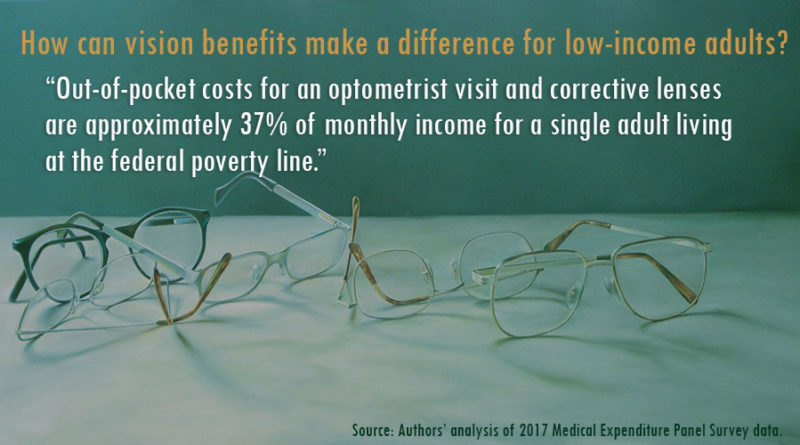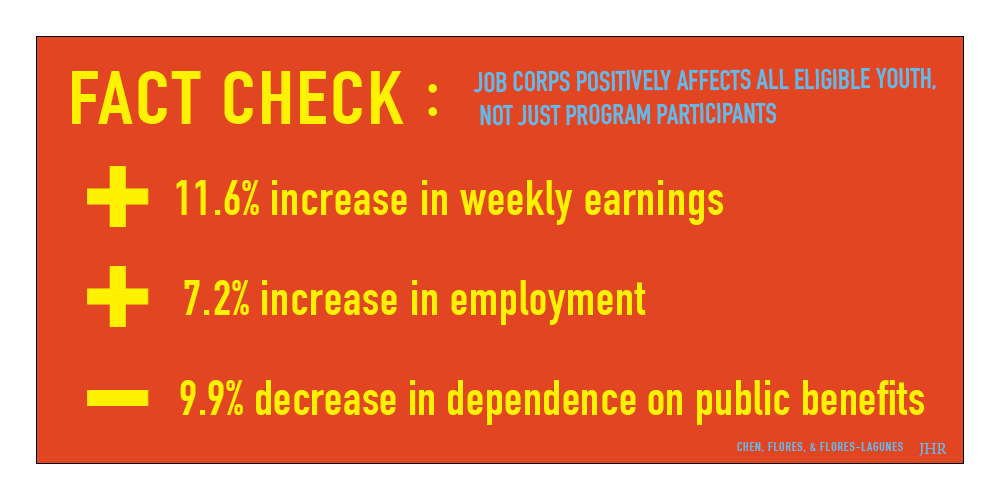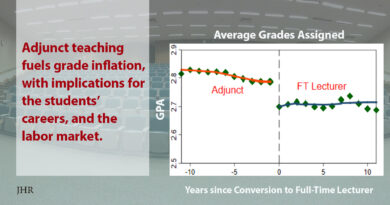Workers with Eye-Care Coverage Tend to Work More Hours and Have More Highly Compensated Positions
While poor vision has the potential to decrease workplace productivity, little is known about the actual connection between access to vision correction and worker behavior. Michel Boudreaux (University of Maryland) and Brandy Lipton (San Diego State University) examined state-level changes to Medicaid’s coverage of eye exams and glasses for adult enrollees during 2001–2012. Adults with these benefits tend to visit the eye doctor more often and have better vision. The researchers wanted to know if vision benefits also meant better employment outcomes for workers.
They found that coverage of these services increases an enrollee’s typical weekly hours worked by about 6%, increases full-time work, and helps enrollees obtain new jobs that require more highly compensated skills. These findings are driven by adults who were already working, as the study did not find evidence that vision benefits increased the number of enrollees who had a job.
Why does vision coverage matter? Coverage of eye exams and glasses may affect work activity for several reasons. According to the team, “Our study finds that coverage of these services is associated with an increase in commuting to work by car, suggesting that easing transportation barriers may be an important benefit of these policies.” A related interesting finding is that effects were also largest among drivers and people with other transportation occupations, which may be because good vision is particularly important for this group.
The results suggest that these relatively low-cost services can have large economic benefits. Recent policy debates have considered how to increase work activity among Medicaid enrollees, with several states experimenting with work requirements as a condition of program eligibility. The findings of this research suggest that access to health services may alleviate work-limiting impairments and enable enrollees to more fully pursue their work-related goals.
Read the study in the Journal of Human Resources, “Medicaid Benefit Generosity and Labor Market Outcomes: Evidence from Medicaid Adult Vision Benefits,” by Michel Boudreaux and Brandy Lipton.
***
Michel Boudreaux (@mhboud51) is at University of Maryland–College Park, and Brandy Lipton (@brandyjlipton) is at San Diego State University.



